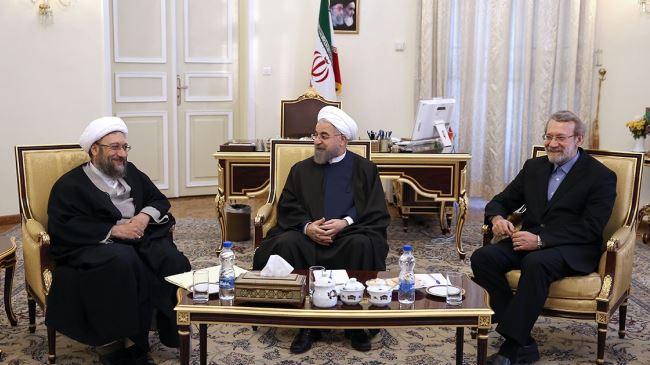“If the opposite party in the negotiations with the Islamic Republic of Iran has the political will for a deal and avoids excessive demands, the conditions are prepared for the conclusion of a deal,” Rouhani said Wednesday evening.
He added that the Islamic Republic’s officials are united on core issues being discussed and the goals being pursued during nuclear talks with the five permanent members of the UN Security Council – the United States, Britain, France, Russia and China – plus Germany.
The Iranian president said Iran is looking for an agreement that would “preserve and guarantee the rights of the Iranian nation and further stabilize the [Middle East] region.”
Rouhani noted that a long-term deal over Iran’s civilian nuclear activities will be in the interest of all countries, emphasizing that such an accord would fix economic problems in the world.
Earlier on Wednesday, Representatives from the Islamic Republic of Iran and the six major world powers opened the second day of talks in the Austrian capital, Vienna, as part of their last round of negotiations to reach a nuclear agreement before the November 24 deadline.
Iranian Foreign Minister Mohammad Javad Zarif, who heads Iran’s negotiating team, has lambasted what he termed the unhelpful red lines set by the six countries to satisfy pressure groups.
The chief Iranian diplomat said on Tuesday that Washington should accept the peaceful nature of Tehran’s nuclear activities, emphasizing that sanctions do not resolve the issue and run contrary to what Iranian negotiating parties tend to think.
Sources close to the Iranian negotiating team say the main stumbling block in the way of resolving the Western dispute over Iran’s nuclear energy program remains to be the removal of all the bans imposed on the country, and not the number of centrifuges or the level of uranium enrichment.
Tehran wants the sanctions entirely lifted while Washington, under pressure from the pro-Israeli lobby, insists that at least the UN-imposed sanctions should remain in place.
